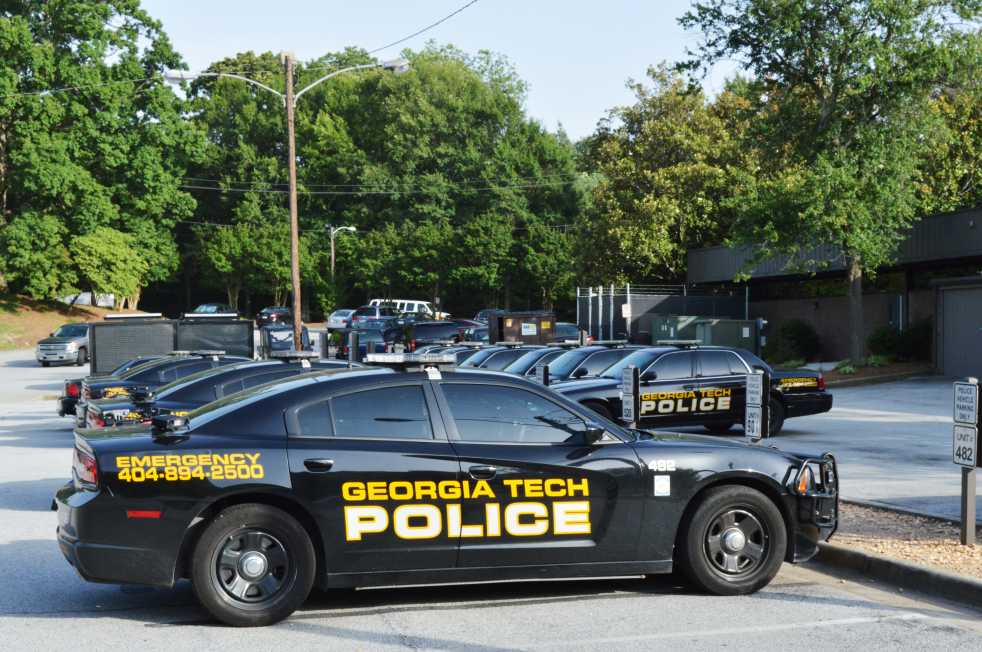This summer, the Georgia Tech Police Department (GTPD) continues to develop its operations as a nationally accredited police force on and off the Tech campus.
According to Rob Connolly, Police Chief of GTPD, a number of training programs are currently being conducted by GTPD.
“Our K9 unit is actually not just helping train the USG schools but also other municipalities with K9s, and certifying them,” said Connolly. “[We are also doing] active shooter training, a tactical response to any active shooter. We’ve done some workshops with the University System of Georgia (USG) to help all the other schools which are not as resourceful to get training.
GTPD has partnered with Georgia’s Department of Homeland Security to conduct some of these training programs, and are carrying them out partly in conjunction with Gwinnett County.
Presently, GTPD is finishing the K9 unit certifications of Hall County Sheriff’s Office, Rockdale County Sheriff’s Office and Floyd County Police Department. Connolly added that last year, GTPD received an award from USG for its training programs.
“It’s a lot of outreach, and especially with the Board of Regents schools, we like to extend, help, and develop best practices and support other schools too,” Connolly said.
GTPD also continues to evolve its work on Tech’s campus. According to Connolly, GTPD has focused on working with Burns Newsome, Tech’s Director of Compliance for Title IX.
“We’ve also identified Captain Randy Barrone to be our Clery Compliance Coordinator for the Board of Regents on the committees,” Connolly said. “He governs the collection of data [for the annual security report] and the validating of those policies within that data, and making sure they meet compliance, and working across the whole campus to monitor all those changes.”
By being proactive, GTPD also hopes to reduce the number of Clery Act notifications it is required to issue, according to Connolly. New bike units are one way GTPD hopes to gain a more visibility and easier access for all students and faculty who wish to contact them.
GTPD has also implemented a new camera system, which incorporates feeds from locations across campus to provide a comprehensive method of monitoring for illicit activity.
A building layout of the entire campus can be accessed, which displays the current locations of all patrol cars currently on duty, as well as places where cameras are transmitting feeds. Any one of these feeds can be enlarged to show activity in that area.
According to Connolly, the new system helps the GTPD responds to incidents more efficiently and has assisted in the solving of many cases.
In conjunction with the implementation of the cameras, GTPD works with students to operate them.
“He patrols [the cameras], and when calls come in, he can go and check and see and put eyes on [the activity], so we can get direction of travel and a lot of other pertinent information,” Connolly said.
An overarching initiative passed by the USG on May 19 was aimed at centralizing implementation and oversight of safety procedures — among other things — at the public universities throughout Georgia.
“[The Board of Regents] wanted to make sure everyone was working off of the same requirements and on the same page,” said Bruce Holmes, Chief of Police for USG. “That came from the community, which were folks from the institutions. [For] the Clery Acts, they wanted to come up with some templates, not that everybody had to use, but just to make sure that everybody had the same information.”
However, since the policy of GTPD is nationally accredited, the initiative will likely not change much, according to Connolly.
“The standard that we’re at, based on the national accreditation, I don’t think it will change much,” said Connolly. “It might change the other 30 Board of Regents schools, but it really won’t change much of our [policy].”
Connolly added that the initiative will likely bring out some best practices among all of Georgia’s public universities.
“In the public safety area, they were looking at some assessment guidelines, [and] they named five areas for each department to provide services in,” said Holmes. “I think they were just trying to make sure each department was providing the same level of service.”
Another new addition by the GTPD is a touchscreen interface located in the lobby of police station. After hours, when the officer working in that area has left, students may use the interface to get in contact with officers on duty.
According to Connolly, the interface replaces a radio system, and will be able to be used to call into disptach. Passively, the screen of the interface displays GTPD safety videos. GTPD are still testing the new system.
